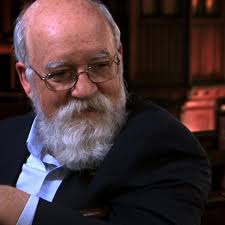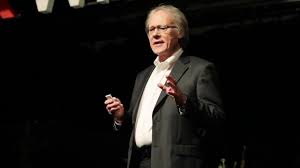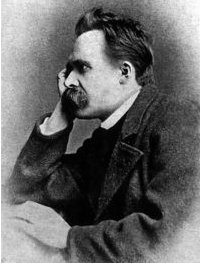This is number 5 in my “On” series. Others include On Capitalism, On Privilege, On Freedom and On Constitutionalism. Forthcoming: On Fear and On Democracy.
The philosopher Daniel Dennett tells a funny story: he says when he’s at a party and someone asks him what he does, and he says he’s a professor, their eyes glaze over. When he’s at a party of professors and one asks him what his field is and he says “philosophy,” their eyes glaze over. And when he’s at a party of philosophers, and one asks him what he studies and he says “consciousness,” their eyes glaze over. So the philosophy of consciousness is not something that inspires excitement in even the most scholarly among us, but I argue here that it is precisely where we’ve gone astray and is the solution to most of the problems we – the modern world – face.
I’ve written at some length about the idea of development, that is, that we change and grow over time. This is an idea about which most modern societies have some ambiguity; we both know and do not know that it is going on. We all know that children develop – that phases of development are natural and normal, and it is normal for your two year old to be self-centered in a way that would make an adult appear like a psychopath. But then we have the idea that development somehow stops at some magical age – between 18 and 21 – after which we are “all equal.” And yet we also know that this is not true, which is why you have to be 35 to be president of the United States, and no undergrads are tapped to be university presidents. What I’m saying is not new agery, but standard developmental psychology: development continues on throughout adulthood and most never come anywhere near the “end” point.
But what I want to address here is not so much the level of consciousness, but the state of consciousness prevalent in the modern West (and increasingly, the East). I was prompted to this by a “banned” TED talk by Graham Hancock, who makes a strong case that there is something like a conspiracy against certain states of consciousness. Now Hancock holds that these preferable states are accessible through certain psychotropic plants – he is not the first I’ve heard say that it is highly likely that the substances used in the ancient mystery schools (of which Plato was probably a member) were psychotropic. I don’t condone the use of these substances, in fact I’m fairly neutral on them, but Hancock also argues persuasively that the societally approved drugs – particularly ones like caffeine and ritalin – promote a state that, while good for problem-solving, is not conducive to examining the moral questions we face. This may be why the “best and the brightest” of our societies have brought us the nuclear bomb, GMOs and a generally more dangerous world. They know “what” to do but not “why” it should be done – it shouldn’t.* This “rational” state that we are encouraged to remain in makes us good cogs in the gigantic machines we are all part of, thoughtlessly commuting to jobs that generally make the world worse.
It is my view that these preferred states are accessible without any substances; through introspection and perhaps meditation, though they probably do require the elimination of the “approved” substances and daily stresses. Hancock is quite compelling in his argument that the prevalent state of consciousness has created most of the problems we see around us and that they cannot be solved from that same state of consciousness, but require another.
- For those who would accuse me of being anti-science: I’m not recommending going back to what was before science, but going beyond it – putting science into a larger framework which factors in moral considerations.




